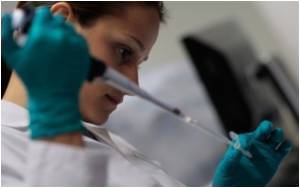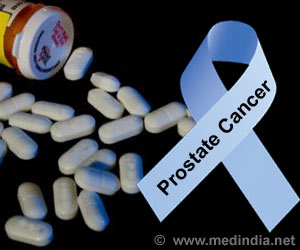A protein crucial for the immune response appears is a key player in the progression of a devastating form of childhood leukemia called T-cell acute lymphoblastic leukemia (T-ALL) has been identified

Led by Iannis Aifantis of New York University and colleagues at the Institute Municipal d'Investigacions Mediques in Barcelona, the new study discovered the protein by picking up on a bit of cross-talk, or conversation, between two unrelated genes.
"We are very excited about this discovery because small molecule drugs that block this protein are already in development.
"We plan to continue to study these inhibitors in the laboratory with the aim of evaluating the feasibility of testing such drugs in patients," said Aifantis.
Despite great strides in treating childhood leukemia, T-cell acute lymphoblastic leukemia (T-ALL), poses special challenges because of the high risk of leukemic cells invading the brain and spinal cord of children who relapse.
Previous research had strongly implicated a well-known oncogene, or cancer-causing gene, called Notch1 in the initiation and progression of T-ALL in patients.
Advertisement
Transcription factors bind to the DNA of genes, thereby activating them. Previous studies had suggested that cross talk between Notch and NF-kB occurred, but the new study reveals the molecular characters involved in the cross talk, and shows that blocking NF-kB eliminated leukemic cells carrying activating Notch mutations.
Advertisement
In other words, the enzyme normally shuts down the pathway of genes regulated by NF-kB.
"Presently, drugs that inhibit NF-kB are already in development and some of them are being tested in humans for inflammatory diseases.
"If used for patients with T-ALL leukemia, such drugs could be used alone or in combination with more established protocols like chemotherapy and radiation," said Aifantis.
The study appeares in the Cancer Cell.
Source-ANI











